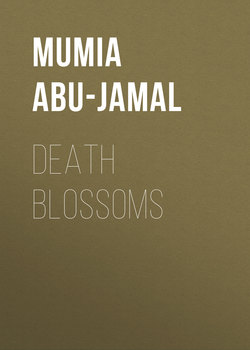Читать книгу Death Blossoms - Mumia Abu-Jamal - Страница 14
На сайте Литреса книга снята с продажи.
ОглавлениеRemembering Moser
RECENTLY I CAME across words from Gibran, one of my boyhood heroes, and reflected on them as I hadn’t in more than a generation. What reader of this passage from The Prophet can but pause for thought?
Oftentimes have I heard you speak of one who commits a wrong as though he were not one of you, but a stranger unto you and an intruder upon your world.
But I say that even as the holy and the righteous cannot rise beyond the highest which is in each one of you,
So the wicked and the weak cannot fall lower than the lowest which is in you also.
And as a single leaf turns not yellow but with the silent knowledge of the whole tree,
So the wrong-doer cannot do wrong without the hidden will of you all.
Like a procession you walk together towards your god-self.
You are the way and the wayfarers.
And when one of you falls down he falls for those behind him, a caution against the stumbling stone.
Ay, and he falls for those ahead of him, who though faster and surer of foot, yet removed not the stumbling stone.
Here I sat, on death row, of all places, and not only on death row, but on Phase II, beside men who, like me, had a few weeks left to live.
One of them, a middle-aged, frog-voiced Vietnam vet, would rather die, than live in this Hell of cells, and, refusing all appeals, did die by lethal injection; by judicial murder, by state diktat. His name was Leon Moser.
Two doors down from me, I tried to get him to fight for his life, to get him to battle the political whores who were using his life, and his very death, as stepping stones to higher political office such as elected judgeship:
“Look, man. I understand how you feel. Hell, if I was a middle-aged white dude from the boondocks stuck down here in this black ‘n’ Spanish village, well—hey—I might do the same thing, or feel like it. Graterford must make you feel as if you were in a foreign country.
“Also, wouldn’t it be good to beat those slimy lawyers in the D.A.’s office, who owe their careers to your life—and your death? I know you hate lawyers!”
“I think lawyers are sleazy, yes. But I don’t really care about being executed. As far as I’m concerned the man they sentenced to death died over ten years ago. To execute me won’t mean nothing, ’cause that man ain’t alive no more. To kill me, Jamal, is just like puttin’ out garbage.”
Moser welcomed death like a long-lost lover, and the State, thirsty for his blood, rushed him off into eternity, ignoring even the attempted telephonic intercession of a federal judge. Defense lawyers criticized his execution as a rush to death.
In those few times I saw him in that dark, humid, and stifling Phase II, Moser appeared fifteen years older than he really was; his hair more white than brown, his beard a whitened, chest-long brush, his visage a stark contrast to pictures published in the daily press, which showed a younger, browner-haired, less furtive face.
He walked with a permanent hump, as if a demon the size of a rogue elephant rode his back, bending him down, down, and still farther down.
For such a one, might not death bring the hope of a respite?
